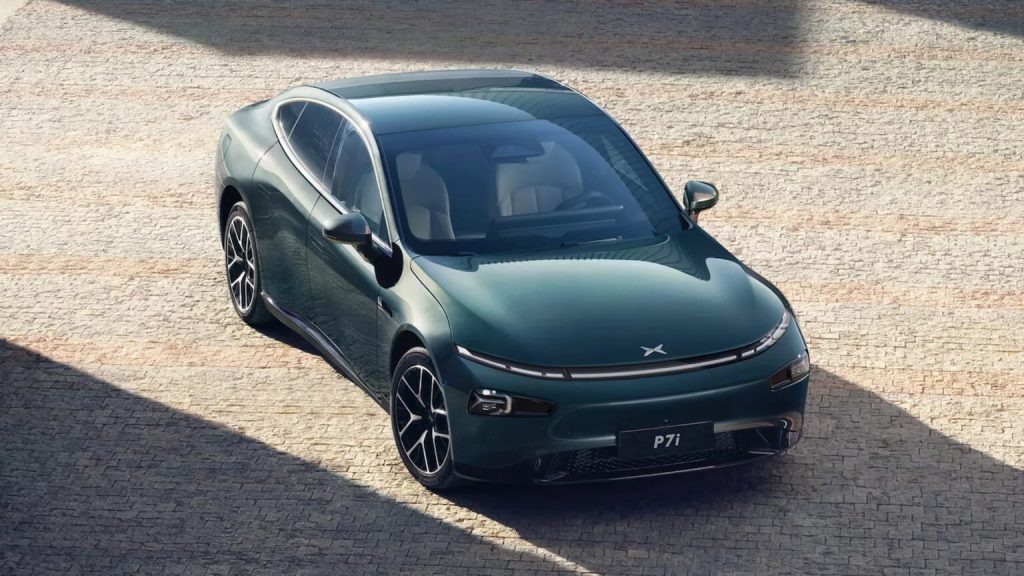In a strategic move aimed at bolstering its presence and diversifying its portfolio in the thriving Chinese mobility market, Volkswagen recently announced a substantial deal. The deal entails Volkswagen’s intention to acquire a five percent stake in Xpeng, a technology-oriented automaker, pending regulatory approval. The proposed investment, valued at $700 million, signifies Volkswagen’s shrewd initiative to tap into China’s rapid growth in the new-energy vehicle (NEV) sector while fostering technological collaboration.
By securing this deal, Volkswagen not only positions itself more solidly in one of the world’s fastest-expanding markets for electric vehicles (EVs) but also gains access to the innovative technology cultivated by the emerging Chinese startup. While Xpeng might be relatively smaller compared to some of its competitors in the Chinese automotive landscape, the company has consistently emphasized technological innovation in its portfolio.
This is juxtaposed against Volkswagen’s commendable standing in China’s internal combustion engine (ICE) vehicle market. However, the automaker has faced challenges in establishing its presence in the electric vehicle domain, currently holding only a 2.6 percent market share in Chinese NEV sales, with Tesla leading as the second most popular EV manufacturer boasting a 10 percent market share.
Volkswagen’s prowess in traditional ICE vehicles has provided it a robust foothold in China. Yet, its comparatively slower start in the EV sector has caused it to lag behind various local players such as BYD, GAC, Wuling, Geely, Li Auto, and Chang’an. Collaborating with Xpeng might prove instrumental in Volkswagen’s bid to bridge this gap. Market research cited by Reuters indicates that Chinese consumers are increasingly influenced by in-car technology, including smart cockpits and advanced infotainment systems. This aligns well with Xpeng’s notable investment in in-car tech, as demonstrated by its flagship model, the P7i. This vehicle features a sophisticated all-scenario driver assistance system, equipped with an array of 31 sensors, including lidar units, radar systems, and ultrasonic sensors, enabling semi-autonomous driving capabilities in various environments.
In a strategic stride toward the future, Volkswagen plans to introduce two “fully connected” midsize EVs by 2026, jointly developed in collaboration with Xpeng, leveraging the latter’s existing platforms and technological expertise. This partnership has enabled Volkswagen to significantly reduce its model development timeline, indicating a possible trend of industry collaboration and partnership-driven innovation.
Volkswagen’s presence in the Chinese NEV market might be relatively modest, comprising less than three percent of the market share. However, it stands as the sole foreign brand, aside from Tesla, to secure a spot in the top 10. Other prominent foreign automakers like Toyota, Honda, General Motors, and Nissan, which feature strongly in the Chinese combustion-engine vehicle market, are trailing behind in the EV segment.
See also: Xpeng CEO Applauds Win-Win Technological Collaboration with Volkswagen
Adding to the complexity of the landscape, China’s passenger car sales hit their zenith in 2017, with production now surpassing demand. This overcapacity is evident in the estimated capacity of 40 million cars, a stark contrast to the 23.6 million units sold in the previous year.
In a turn of events, the roles have shifted from the time when Chinese regulations mandated foreign automakers to partner with domestic counterparts. Now, it appears that these foreign giants must consider collaborations and partnerships with Chinese startups to maintain their relevance and competitiveness in the electrified vehicle race.
